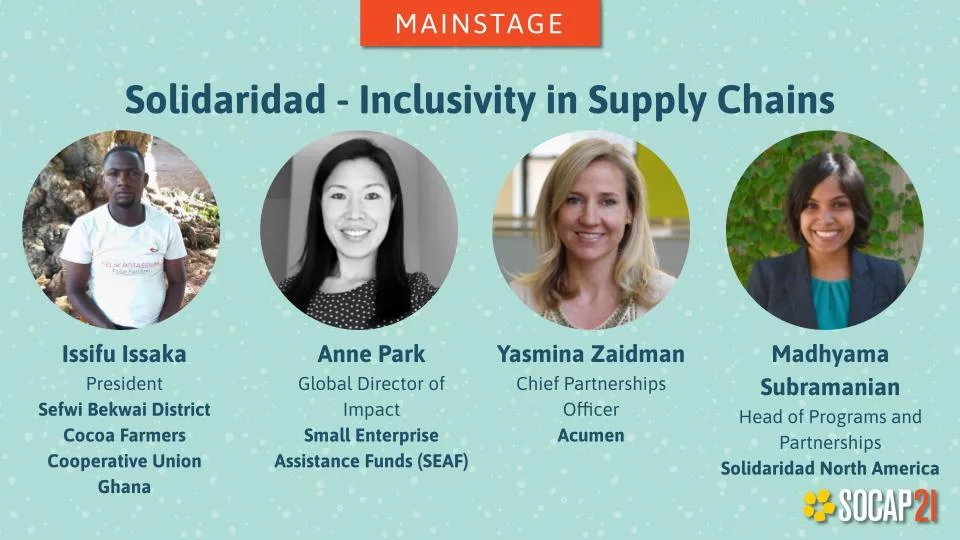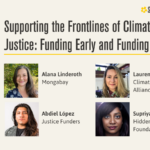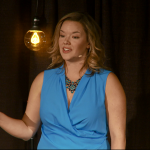More leaders in the private sector are realizing the need to incorporate equity and sustainability in their practices to ensure the future of their supply chains and businesses — and the planet itself. Smallholder farmers play a vital role in feeding people around the globe, producing a third of the world’s food as well as catalyzing local economies and influencing sustainable development. But many of these producers continue to live in poverty and work in substandard conditions. This SOCAP21 discussion examines how impact investments can be used to lift smallholder farmers and other producers and help them achieve true sustainability.
It includes the perspective of Issifu Issaka, President of Sefwi Bekwai District Cocoa Farmers Cooperative Union in Ghana. He spoke from his home about his experience as a smallholder farmer and leader of the local cooperative and the need to include more producers like him in decision-making. He said cocoa farmers are only involved in the production and left out of the rest of the cocoa-trading process. By increasing communication so farmers can be involved with regulators, government, and others in the market, he said, they can better understand their role in the system, how the cocoa is priced, and their right to a greater share of the money involved.
“The farmers don’t know anything about cocoa trading,” he said, noting that 5-6% of the cocoa market goes to producers, with the rest distributed among others in the process. “There should be a fair sharing among the supply chain.”
Anne Park, Global Director of Impact at Small Enterprise Assistance Funds (SEAF), works in the agribusiness sector with a focus on connecting inventors with companies that serve smallholder farmers.
“Processors are oftentimes the ones who benefit the least when commodities go to market. Inclusion for us means serving those who are marginalized or not being thought of in a systemic way. There are a lot of innovative ways to be inclusive, but it’s about matching the right financial product to the need.”
Anne Park
Yasmina Zaidman, Chief Partnerships Officer at Acumen, said taking a sector focus within a regional context helps identify the right business model to address systemic challenges and build inclusion at scale among varied groups. “Inclusive can mean different things,” she said. “Inclusive can really mean anything from working with diverse communities, low-income communities, people with disabilities, people who have traditionally faced barriers to employment.”
To help businesses that want to embed inclusivity throughout their business model, she said Acumen developed a business playbook. “You don’t look just within the walls of your company, but you look beyond that,” she said. “It starts at the top in terms of values, and then it can really move through every facet of the business.”
“Bringing stakeholders together more and more can be around these bolder visions that are values-based — climate change, gender equity.”
Yasmina Zaidman
As an example, she cited Azahar Coffee, which has expanded transparency about the wages that coffee farmers receive and is working to change the coffee market to put farmers at the center while using capital as a means and not an end. “They’re empowering farmers with information that makes them a part of the process,” Zaidman said. “Financial incentives in some ways only take you so far, and there are still gaps. Bringing stakeholders together more and more can be around these bolder visions that are values-based — climate change, gender equity.”
Watch Inclusivity in Supply Chains Post-COVID — and How Impact Investing Fits in
Speakers:
Issifu Issaka, President of Sefwi Bekwai District Cocoa Farmers Cooperative Union Ghana
Anne Park, Global Director of Impact at Small Enterprise Assistance Funds (SEAF)
Yasmina Zaidman, Chief Partnerships Officer at Acumen
Madhyama Subramanian, Head of Programs and Partnerships at Solidaridad North America, Moderator







